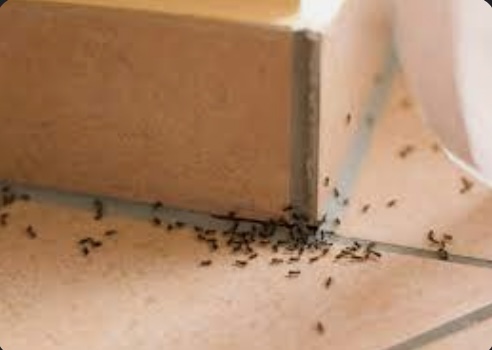How to Effectively Combat and Prevent Ant Infestations in Your Home and Garden

No one wants to deal with an ant infestation in their home or garden. These tiny invaders can cause structural damage, contaminate food, and be a general nuisance. In this comprehensive guide, we will discuss how to identify the ant species, common infestations, effective control methods, natural and chemical-free solutions, preventative measures, and when to call in professionals.
How to Effectively Combat and Prevent Ant Infestations in Your Home and Garden
Identifying the Ant Species
Before attempting to control an ant infestation, it’s important to identify the species of ant you’re dealing with. Different species have unique behaviors and nesting preferences, which will affect the most effective control methods. Some common species found in homes and gardens include:
- Carpenter ants
- Pavement ants
- Odorous house ants
- Fire ants
- Pharaoh ants
- To accurately identify the ant species, consult a pest control expert or use an online identification guide.
Common Ant Infestations
Ants typically infest homes and gardens in search of food, water, and shelter. Common signs of an infestation include:
Ant trails along walls, baseboards, and countertops
Ant nests in walls, under pavers, or near tree roots
Swarming ants around food sources or water
Damaged wood or insulation from carpenter ant activity
Effective Ant Control Methods
Once you’ve identified the ant species and the extent of the infestation, you can employ various control methods. These include:
Baits
Ant baits are an effective way to eliminate ants. Baits contain a slow-acting insecticide combined with a food source. Worker ants take the bait back to the colony, eventually killing the queen and other ants.
Insecticides
Apply insecticides directly to ant nests or along ant trails. Choose an insecticide labeled for the specific ant species and follow the manufacturer’s instructions for application.
Dusts and Powders
Dusts and powders, such as diatomaceous earth or boric acid, can be applied around ant entry points, along ant trails, or directly to nests. These products work by damaging the ants’ exoskeletons, leading to dehydration and death.
Natural and Chemical-Free Solutions
If you prefer a more natural approach to ant control, try the following methods:
Vinegar
Mix equal parts water and white vinegar in a spray bottle. Apply the solution to ant trails and entry points to disrupt their scent trails.
Essential Oils
Combine a few drops of peppermint, eucalyptus, or lemon essential oil with water in a spray bottle. Apply the solution to ant-infested areas as a natural repellent.
Cornmeal
Sprinkle cornmeal near ant nests or along ant trails. Ants will take the cornmeal back to the colony but are unable to digest it, resulting in death.
Preventative Measures
- To prevent future ant infestations, implement the following strategies:
- Seal cracks and crevices around your home
- Keep your kitchen clean and store food in airtight containers
- Regularly clean up spills and crumbs
- Maintain a dry, well-ventilated home
- Eliminate sources of standing water
- Trim vegetation away from your home’s exterior
- Remove debris and woodpiles near your home
- Regularly inspect your home and garden for signs of ant activity
- When to Call Professionals
In some cases, a DIY approach may not be enough to eliminate an ant infestation. It’s time to call in professional pest control services if:
The infestation persists despite multiple attempts at control
The ant species is particularly aggressive or difficult to eliminate, such as carpenter ants or fire ants
The infestation is causing significant structural damage or health risks
You’re unsure how to effectively and safely use pest control products
Professional pest control technicians have the knowledge, experience, and tools necessary to eliminate ant infestations and prevent future problems.
Conclusion
Dealing with an ant infestation can be frustrating and time-consuming, but with the right approach, it’s possible to effectively control and prevent these unwanted invaders. By identifying the ant species, employing targeted control methods, utilizing natural and chemical-free solutions, and implementing preventative measures, you can protect your home and garden from ants. Don’t hesitate to call in professional help if the infestation persists or poses significant risks to your home and well-being.
By following the steps outlined in this comprehensive guide, you can effectively combat and prevent ant infestations in your home and garden, ensuring a safe and comfortable environment for you and your family.




























